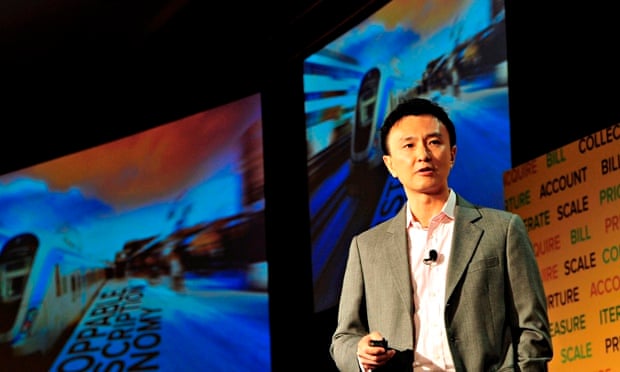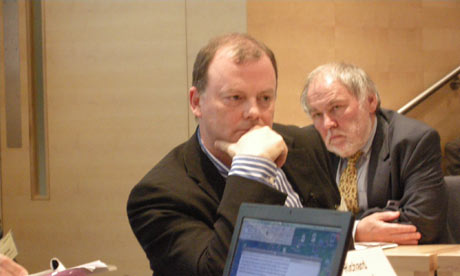Developments in new/digital media mean that audiences can now have access to a greater variety of views and values. To what extent are audiences empowered by these developments?
Sample answer: Audiences are empowered by being able to access a wide variety of news and opinion using a single device such as their phone or tablet. The ease with which someone can check the Guardian website and Mail Online – both for free – means that they can access a wide variety of views before forming their own opinions on the news.
I believe that audiences
are dis empowered by the developments in new and digital media to a
large extent.
To begin with, audiences have been given an illusion of control, and whatever they are able to create using the internet, i.e. any user generated content such as YouTube videos, can be deleted by those in control.
On the other hand, audiences are empowered, as they can report/block other users of the same platform, for example on Instagram –this can lead to the user who’s reported having their account or the post reported being deleted. Although this is control, as offensive or ‘fake’ accounts/posts can be reported, this control is just an illusion of control for users, as they cannot directly ‘block’ or ‘report’ any of the actions made by these platforms.
Furthermore, terms and conditions are ‘ticked’ i.e. agreed by audiences when joining a social networking website such as Facebook or Twitter. This shows that hegemony is in place, as agreeing to the terms and conditions, is been made so ‘normal’ that audiences do this almost automatically when they wish to sign up. It is a procedure audiences must do, and they have no control over this, because if they want to be using this platform, and tweet for example – this is a requirement, in order to keep those who are elite in power. Elite people include owners of such social media sites, such as Mark Zuckerberg – this shows that the mass-audience are dis-powered, as they have to do as these elite people want – and due to hegemony, it is not often realized, thus seen as normal.
Although audiences are now able to set news agenda, and contribute to what news stories will be. There have been many examples of this such as tweets from the public during the London Riots being included in various publications from news institutions, such as the Guardian. Other than this, Nina Gross – who is the sister of recently murdered Alice Gross was able to gain news and social media (Twitter) attention by tweeting BBC Question Time (using hash tag #BBCQT) about their political criticism on the murder case. Gross had asked them to let the Gross family grieve, rather than opening the case for a political debate. Not only did this manage to get a number of re-tweets, i.e. sharing amongst twitter users. But BBC had replied to her tweet, to apologise to Nina and her family. This shows there is some element of pluralism in our society, as audiences have the ability to gain some control, as they are directly able to stand up to the elite institutions, and businesses - such as BBC.
Taking in consideration these points, there are many adverts we are shown that can’t be controlled. For example, in the news – audiences will have to see what is shown to them, these adverts may be ignored, however are there because the news editors, writers and advertising agency’s want them to be. Also, hegemony is used in order to show audiences what is right and what is socially wrong. This is done mainly by the news and programmes such as Benefit Street, that doesn’t only dumb the audience down, as a Marxist would say, but it also tries to make the audience believe that the minority who are on benefits due to being redundant, or on welfare are negatively affecting those who are richer, and
Similarly, the news had also exaggerated the story of a lady who had breast enlargements so that the audience are forced to believe that ‘people taking benefits are bad’ – when in reality, less than 1% of benefit claimers are not legit. This shows that the audience see what they are shown, evidently they don’t have much control, as institutions are choosing to dumb us as audiences down, so we don’t speak against decisions of the elite, i.e. politicians, when they wish to decrease welfare benefits for example.
In addition, there are many stories that aren't shown as much in the news as they possibly should be. These include stories in LEDC’s (such as Cambodia, Bangladesh and Pakistan) of acid attacks predominantly on females. Although this may be due to the news values (Rouge) i.e. news criteria wanting to provide for what the ''audience want'' showing mainly elite people/nations on the news, such as celebrity's and politicians, as this may be more interesting to the audiences. This links to our society being more pluralist, as according to the news values and what is shown, the audience are the ones who make it popular, thus ‘’sell’’. However, showing those who may need more help & attention than others stories, such as the royal baby being born will mean that society will be able to get a better view of the struggle of those in other countries. These people who are disadvantaged aren't shown due to the fact that many of them are females, and not in privileged countries. Being female and disadvantage but not being heard or in the news, can potentially due to the fact that institutions are dominated by males, such as Rupert Murdoch; therefore they may prefer to not include so much on feminism, and females in LEDCS, as they are neither elite people, nor in elite nations.
This is giving audiences the illusion of equality, and that they are getting ‘global news’ (as news channels such as Sky would title). Truthfully, audiences are only given the power and rights to seek equality for themselves, however not shown as much from the places where female rights don’t exist, therefore the audiences don’t have control over new and digital media, as many stories that can be assessed are hidden.
To conclude with although audiences are able to influence news agenda’s, and arise many issues and other stories through social media such as twitter, within society, for example Police in America killing a number of people, mistaking them for criminals or by accident.
To begin with, audiences have been given an illusion of control, and whatever they are able to create using the internet, i.e. any user generated content such as YouTube videos, can be deleted by those in control.
On the other hand, audiences are empowered, as they can report/block other users of the same platform, for example on Instagram –this can lead to the user who’s reported having their account or the post reported being deleted. Although this is control, as offensive or ‘fake’ accounts/posts can be reported, this control is just an illusion of control for users, as they cannot directly ‘block’ or ‘report’ any of the actions made by these platforms.
Furthermore, terms and conditions are ‘ticked’ i.e. agreed by audiences when joining a social networking website such as Facebook or Twitter. This shows that hegemony is in place, as agreeing to the terms and conditions, is been made so ‘normal’ that audiences do this almost automatically when they wish to sign up. It is a procedure audiences must do, and they have no control over this, because if they want to be using this platform, and tweet for example – this is a requirement, in order to keep those who are elite in power. Elite people include owners of such social media sites, such as Mark Zuckerberg – this shows that the mass-audience are dis-powered, as they have to do as these elite people want – and due to hegemony, it is not often realized, thus seen as normal.
Although audiences are now able to set news agenda, and contribute to what news stories will be. There have been many examples of this such as tweets from the public during the London Riots being included in various publications from news institutions, such as the Guardian. Other than this, Nina Gross – who is the sister of recently murdered Alice Gross was able to gain news and social media (Twitter) attention by tweeting BBC Question Time (using hash tag #BBCQT) about their political criticism on the murder case. Gross had asked them to let the Gross family grieve, rather than opening the case for a political debate. Not only did this manage to get a number of re-tweets, i.e. sharing amongst twitter users. But BBC had replied to her tweet, to apologise to Nina and her family. This shows there is some element of pluralism in our society, as audiences have the ability to gain some control, as they are directly able to stand up to the elite institutions, and businesses - such as BBC.
Taking in consideration these points, there are many adverts we are shown that can’t be controlled. For example, in the news – audiences will have to see what is shown to them, these adverts may be ignored, however are there because the news editors, writers and advertising agency’s want them to be. Also, hegemony is used in order to show audiences what is right and what is socially wrong. This is done mainly by the news and programmes such as Benefit Street, that doesn’t only dumb the audience down, as a Marxist would say, but it also tries to make the audience believe that the minority who are on benefits due to being redundant, or on welfare are negatively affecting those who are richer, and
Similarly, the news had also exaggerated the story of a lady who had breast enlargements so that the audience are forced to believe that ‘people taking benefits are bad’ – when in reality, less than 1% of benefit claimers are not legit. This shows that the audience see what they are shown, evidently they don’t have much control, as institutions are choosing to dumb us as audiences down, so we don’t speak against decisions of the elite, i.e. politicians, when they wish to decrease welfare benefits for example.
In addition, there are many stories that aren't shown as much in the news as they possibly should be. These include stories in LEDC’s (such as Cambodia, Bangladesh and Pakistan) of acid attacks predominantly on females. Although this may be due to the news values (Rouge) i.e. news criteria wanting to provide for what the ''audience want'' showing mainly elite people/nations on the news, such as celebrity's and politicians, as this may be more interesting to the audiences. This links to our society being more pluralist, as according to the news values and what is shown, the audience are the ones who make it popular, thus ‘’sell’’. However, showing those who may need more help & attention than others stories, such as the royal baby being born will mean that society will be able to get a better view of the struggle of those in other countries. These people who are disadvantaged aren't shown due to the fact that many of them are females, and not in privileged countries. Being female and disadvantage but not being heard or in the news, can potentially due to the fact that institutions are dominated by males, such as Rupert Murdoch; therefore they may prefer to not include so much on feminism, and females in LEDCS, as they are neither elite people, nor in elite nations.
This is giving audiences the illusion of equality, and that they are getting ‘global news’ (as news channels such as Sky would title). Truthfully, audiences are only given the power and rights to seek equality for themselves, however not shown as much from the places where female rights don’t exist, therefore the audiences don’t have control over new and digital media, as many stories that can be assessed are hidden.
To conclude with although audiences are able to influence news agenda’s, and arise many issues and other stories through social media such as twitter, within society, for example Police in America killing a number of people, mistaking them for criminals or by accident.








